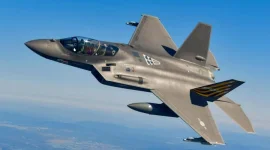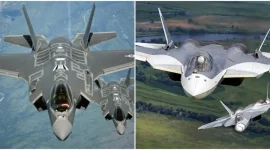- Views: 525
- Replies: 4

India's defence sector stands at a critical juncture, poised to become a major exporter of weapons systems. However, to fully realize this potential, India needs a revamped public relations (PR) strategy.
This strategy must not only help Indian defence exports penetrate global markets but also cultivate a positive international perception. Turkey's success with its Bayraktar TB2 UAV offers valuable lessons in effective PR for defence exports.
Weapons systems often carry negative connotations. Effective PR can reframe this narrative by highlighting the technological prowess, reliability, and strategic advantages of Indian defence products. Turkey successfully generated significant interest in the TB2, marketing it as a symbol of Turkish innovation and military might, despite its reliance on foreign components.
Indian defence products sometimes face skepticism about their quality and reliability. A dedicated PR strategy can address these concerns directly by showcasing successful deployments, testimonials from user countries, and rigorous testing standards.
The story of how India's defence systems are developed, emphasizing indigenous technology and the "Make in India" initiative, can be a powerful narrative. This approach not only fosters national pride but also appeals to countries seeking alternatives to traditional arms suppliers.
A strong PR campaign can build trust with potential buyers, especially in regions where India aims to expand its influence. This involves transparency about capabilities, costs, and after-sales support, elements Turkey has used effectively to reassure its customers.
Similar to Turkey, which benefited from showcasing its UAVs in actual combat scenarios, India can leverage its partnerships and successful defence collaborations to demonstrate the effectiveness and interoperability of its systems.
To achieve these goals, India should consider establishing a dedicated defence export PR agency. This agency would have a singular focus on promoting defence exports, understanding the nuances of international arms sales, and tailoring messages to different markets. It could bring together experts in defence technology, international relations, and marketing, creating a comprehensive PR approach.
With a specialized agency, India could establish a more aggressive presence in international defence exhibitions, seminars, and forums, similar to Turkey's successful approach. This would allow India to compete more effectively with countries like China and the United States, which have well-established PR machines for their defence sectors.
In an era of rapid information dissemination, a specialized PR agency could quickly respond to negative narratives, provide accurate information, and maintain India's image as a responsible arms exporter.
By learning from Turkey's success with the Bayraktar TB2 and implementing a proactive PR strategy, India can transform its defence sector into a globally recognized brand, enhancing its export potential and strengthening its position in the international arena.


